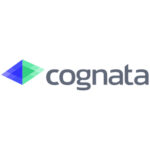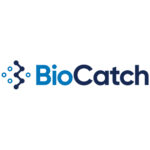The UAE has over the last five years or so become home to a growing range of innovative tech companies in a wide variety of sectors, including fintech. This has been the result of a very deliberate policy of the UAE government to turn the country into a global tech hub, creating an advantageous environment for entrepreneurs while also capitalizing on the country’s strategic location as an access point to the Middle East.
A further key to the country’s development as a leading global tech development center has been the signing of the Abraham Accords in September 2020. The unprecedented agreement between UAE and Israel, in addition to opening up diplomatic relations between the two countries, has also created a positive environment for economic engagement — bilateral trade reached US$1.2 billion in 2021, and is expected to exceed US$10 billion by 2027.
The normalization of diplomatic ties has also been a boon to Israeli tech companies giving them the opportunity to establish partnerships and collaborations with UAE-based companies. Significant numbers of Israeli startups and companies in technology, healthcare and agriculture have taken advantage of the entente to expand into the UAE, attracted by the country’s growing tech ecosystem and the prospect of accessing new markets in the Middle East.
Companies coming to the UAE have included multinationals looking to achieve additional growth, as well as startups who view it as an opportunity to flourish in a relatively small economy, in addition to it being an entry point to GCC (Gulf Cooperation Council) countries.
Israeli Tech Companies Expanding into the UAE
There are a number of Israeli tech companies who have successfully expanded into the UAE. They come from a variety of different sectors, and exemplify the ways in which the business environment in the UAE is making it so appealing for Israeli tech entrepreneurs of all kinds.
Freenome

Freenome was launched in 2014 and has made its name by developing unique blood tests designed to detect cancer in its earliest, most treatable stages. Using a combination of expertise in molecular biology with machine learning, the multi-disciplinary team at Freenome seeks to combine scientific exploration with empathy, integrity and trust.
The company has attracted more than $1.1 billion in funding from a mix of healthcare and technology investors, with its work subject to strategic and scientific counsel from an advisory board made up of experts in cancer biology, molecular biology, computational biology, and machine learning.
Papaya Global

Innovative fintech powerhouse Papaya Global has completely transformed the way that global payroll services are delivered, and since its launch in 2016 has grown to such an extent that its platform is now being used in 160+ countries around the world.
Businesses are increasingly operating in a globalized world and workplace, where remote and hybrid working is on the increase, and more people are eschewing traditional models of work in favor of operating as independent contractors. In order to facilitate this, the Papaya Global platform makes it straightforward to manage a diverse and disparate workforce’s information, regardless of whether they are freelancers, EOR workers, or on the payroll.
HRIS data, such as working hours and leave, can also be accessed, and managed from a user-friendly dashboard, while a self-service portal enables employees to access their own data.
StoreDot

A pioneer in the field of extreme-fast charging and extreme-energy density technology, StoreDot seeks to push the boundaries when it comes to energy storage. Through a combination of nanotechnology, organic chemistry and artificial intelligence, StoreDot is seeking to revolutionise lithium-ion battery cells so that electric vehicle (EV) batteries can be more easily and cost effectively manufactured on a standard production line.
StoreDot’s innovative 100inX batteries for EVs can be fully charged in minutes, and use groundbreaking technology to maximise the number of miles that can be travelled per minute of changing. It is anticipated that this will rapidly increase the rate of electric vehicle adoption worldwide.
Cognata

Cognata has developed a photorealistic vehicle simulation platform that is used to train AI-based engines for autonomous vehicles (AV), as well as in the development of advanced driver assistance systems (ADAS) for use in mining and agricultural vehicles, and various defence technology.
The platform enables virtual cars to drive along virtual roads in urban, rural and unmarked terrain, through successfully recreating real world driving conditions. It can be used throughout the entire AV development process, utilising cloud architecture to create synthetic environments and a wide variety of safety-critical scenarios that incorporate not only vehicles, but also buildings, pedestrians, cyclists and more.
BioCatch

BioCatch is at the forefront of fraud protection technology, and works with a range of banking providers to create secure, frictionless digital experiences on both mobile and web for all users.
The company works with both corporate and retail banks to prevent account opening fraud, account takeover attacks, and other forms of social engineering scams. It aims to identify user behavioural anomalies before fraud is able to be committed, essential for the protection of P2P payment platforms.
BioCatch also supports the management of digital identity across a variety of industries and sectors, helping to identify cyber criminals while smoothly facilitating genuine transactions by legitimate users.
Featured image credit: Edited from Freepik








No Comments so far
Jump into a conversationNo Comments Yet!
You can be the one to start a conversation.